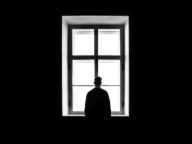[Editor’s Note: Everyone has mental health experiences on the spectrum between thriving and struggling. Perhaps you (or a friend) are in a season where you need extra mental, social, emotional, spiritual, and physical support. In this #mentalhealth series we want to balance personal experience/story with input from mental health and medical professionals. We want to also explore, “How does our faith in Jesus relate to our mental health?” Our desire is to support you as you work towards mental well-being.
If you are considering hurting yourself or someone else, or you know someone who is, please contact a mental health emergency hotline. If you need urgent counselling support, Kids Help Phone is also available for young adults up to age 29 for phone calls, Facebook Messenger, or texting conversations.]
Plunging into confusion
At the end of a school year I prayed—with great seriousness—something like, “God, I want to truly know your love for me. I want to know with my whole being—and not just with my head—that you love me. Will you please teach me?”
I imagined that this lesson would involve feeling a series of “warm-fuzzies.” I had grown up loving God, but I had become increasingly aware that it was possible to tangibly experience God’s love in return. I wanted a greater awareness of God’s presence, and I was eagerly expectant for how he might present himself to me. But to my horror, I found myself in a dark night of the soul.
Initially, I didn’t have a name for what I was experiencing. But my experience was real: God stopped making sense. My spiritual practices stopped “working.” Or at least it felt that way. I couldn’t believe a word of the Bible. I knew I should pray, but approaching God felt terrifying. As I listened to sermons, I would also hear an inner voice arguing with everything said. I’d gone to church my whole life, so I’d been through spiritual highs and lows before; but this was a new experience. Previously, it felt possible to be encouraged by the “right” answers to my doubts. But now these responses were hollow and flat. God was gone.
Why am I unhappy?
On the surface, my biggest challenge was the classic question: Why do bad things happen? I couldn’t make sense of a few key frustrations. Specifically, I thought I was following Jesus when I said yes to serving in a Christian ministry, giving up a career in landscape architecture. Yet I was finding my job frustrating. If I was doing what God wanted, why was I so unhappy?
On one hand, I wanted to blame God for my situation—it was unfair! But if God was perfect, then I couldn’t accuse him. So the natural alternative was that I was at fault. Maybe I had chosen the wrong thing. Maybe I was a failure in my role. Maybe I was guilty of some sort of pride or secret sin. My heart raged against this option. So I bounced between blaming God and blaming myself, blaming God and blaming myself. What I needed was a third way, an alternative understanding of this darkness.
One of my brothers is not a Christian because he got tired of this type of tension. “Sam, you’re overthinking,” he would say. “This religious stuff is no good. Just live your life.” I did consider walking away from Jesus. But I knew too much. I had experienced too much. Deep, deep down, I knew God was real. I knew he loved me, and that I was safe—even though I was nearly cursing him some days. But there were also all these questions. On the surface, I was looking for a way to understand my unhappiness, but I think the deeper issue was a struggle to understand God’s love. How secure is it? Where is his love when I am unhappy?
Finding the right language
The darkness began with a few days, which turned into weeks, then months. It was compounded by some unfortunate external circumstances and conflicts. I began to share with others that I was depressed. This gave helpful language to some of the psychological and physical things I was experiencing. But “depression” didn’t quite express my spiritual angst.
At some point, I came across the concept of a “dark night of the soul.” The phrase “dark night” is from a poem by a Spanish mystic named St. John of the Cross, who lived from 1542 to 1591. He wrote about how Christians must learn to walk in the dark. He observed that God often seems to withdraw from individuals for a time to help them mature as followers of Jesus. What I was experiencing was not unusual. Nor was it just the 21st-century phenomenon of “deconstruction.” Experiencing a dark night is lonely, but it is a path walked by history’s greatest saints.
Stubbornly holding on
During this time, I felt like a complete hypocrite. I would go to church, but couldn’t sing the songs declaring trust in and love for God. I would pray and read my Bible, even though these times didn’t seem meaningful to me. I would go to my job mentoring Christian students, and we would talk about how the gospel applies to our lives. This was especially hard because I could believe that Jesus was good news for them, but not for me. I had made up all these loopholes about why I was excluded from God’s love based on my unhappiness. Why was I trying to do all these Christian things if they didn’t feel authentic?
Encountering God may not have been my authentic experience in those months, but I knew my past experiences were real. For over twenty-four years, my world had been coloured by a knowledge of his presence. I couldn’t suddenly throw all those years away because life felt different now. I stubbornly held onto God and onto myself: I needed there to be continuity between the person who once loved and encountered God and the one I had become.
Few things comforted me; the language of “dark night of the soul” was one thing that did. St. John of the Cross was not the only one to talk about this idea. In C.S. Lewis’ The Screwtape Letters, a senior demon describes the world to a junior demon. Part of this unusual perspective caught my attention:
“Our cause is never more in danger than when a human, no longer desiring, but still intending, to do our Enemy’s [God’s] will, looks round upon a universe from which every trace of Him seems to have vanished, and asks why he has been forsaken, and still obeys.”
I was obeying, even if the desire and pleasure I once had in doing so were gone. Could it be that my faithfulness in the dark still mattered, even if it didn’t feel that way?
Wrestling with God in the dark
As I caught on to the possibility that I might be in a potentially meaningful “dark night of the soul,” my prayers started to shift. Instead of begging God to let me return to what was, I started asking him for a blessing. Like when Jacob wrestled God all night, I decided to hang on to God, refusing to let go until he blessed me. That is, I started to realize that there was no going back to the person I was before. Her way of walking with God had been valid, but now I was being invited into a deeper maturity. I began to pray something like, “God, don’t let this dark night be over until it has completed all the work you want it to do in my life. Don’t just restore me to who I was. Renew me!”
The possibility opened that maybe what I was experiencing was a gift, rather than a curse. Maybe what I was experiencing was an answer to the prayer I had prayed: “Lord, help me to know your love.”
A key breakthrough came in a small group I was leading. As we went through the material, I suddenly came to the realization that my unhappiness was probably not a direct result of something I had done. Happiness is not guaranteed by making the right decisions, nor is sadness and pain guaranteed by making the wrong ones. Jesus’ life, death, and resurrection has undone the law of cause and effect. There is still a connection between what I do and what happens to me, but I am free to make decisions without fear. This was the third way I was looking for: neither God nor I needed to take the blame for my unhappiness. It just was, and we could walk in it together. Happiness and being loved are not correlated. To me, this was very good news.
Neither God nor I needed to take the blame for my unhappiness. It just was, and we could walk in it together.
Rescued at last
My dark night didn’t immediately end when I came to this realization, partially because my understanding of this good news developed over the weeks and months that followed, and partially because I also had to first get out of some external circumstances that were causing a lot of grief. But in the end, coming back into the light was primarily a work of God, a rescue. It happened at the beginning of March 2020—right before the pandemic became our reality. God’s kindness felt incredibly salient to me: while most people’s worlds were shaking, in a matter of days I gained a stability previously unknown. I felt like I had my soul back.
It’s hard to make a strong distinction between my dark night of the soul and my experience of depression. They are linked, but I think they were different experiences. For me, the first was felt internally, while the second was tied to some specific external circumstances.
Though I know my dark night was valuable, it has taken me a long time to be thankful for it. I recently re-read my journal from that time, and the tone of my entries scares me. I was so angry and afraid. And I recorded many legitimate questions, ones I’m still asking. But though the questions are the same, I, the questioner, am changed. I’m asking them of God from a new place of security. Even though I was anything but loving towards God for those ten months of darkness, he faithfully continues to extend deep love to me.
I’m still seeking God’s presence in fresh ways. I still want to better know his love, because if it’s as big as I think it is (which is bigger than anyone can imagine), then there will always be more to uncover. Like all adventures, this exploration has good days and bad days—how thankful I am now for the good days! But there’s purpose and hope in the bad days too. It seems that God is just as eagerly seeking us, so in the end, no day will be wasted—even the darkest days. Hold on my friends: light will come.
Did you enjoy this article? We encourage you to check out more articles in our #mentalhealth series.
"*" indicates required fields
Share this!
About the Author





